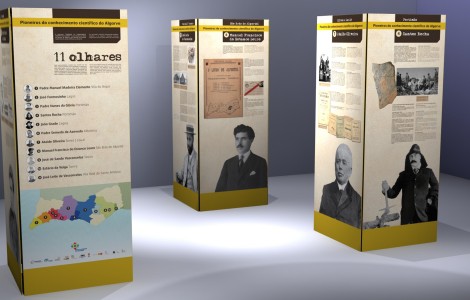 The Municipal Museum of Archeology of Silves will host, from the 6th of June, the exhibition “Pioneers of Scientific Knowledge in the Algarve”, promoted by the Algarve Museum Network (RMA) and which has been roaming around the region.
The Municipal Museum of Archeology of Silves will host, from the 6th of June, the exhibition “Pioneers of Scientific Knowledge in the Algarve”, promoted by the Algarve Museum Network (RMA) and which has been roaming around the region.
Produced jointly by institutions belonging to the RMA, this exhibition addresses not only 11 figures who, from the late XNUMXth century to the XNUMXth century, left relevant legacies for scientific knowledge about this region and sought to clarify and support the contours of the country's identity, through the study of the social, cultural and popular landscape of the Algarve, but also the representations of the Algarve in the discourses of ethnography, archeology and local history, in the century. XIX and XX.
José Leite Vasconcelos, Estácio da Veiga, Santos Rocha, José Formosinho, Fr. Nunes da Glória, Ataíde de Oliveira and João Grade Cabrita Santos (Museums of Portimão, Albufeira, Silves, Loulé and the Municipality of Lagoa), Sande Vasconcelos and Estácio da Veiga (Museu de Tavira) and Fr. Manuel Madeira Clemente (Municipality of Vila do Bispo), are the personalities portrayed in this exhibition.
Ataíde de Oliveira is the natural prominent figure in Algoz, municipality of Silves. Originally from a family of small agricultural landowners, he graduated in Law and Theology. He played a fundamental role in the development of social communication and historical and ethnographic research in the Algarve region, having founded the first Loulé newspaper “O Algarvio” in 1889.
He wrote a set of important monographs for the construction of regional history, having been a pioneer in the collection and editing of legends, novels and songs from the Algarve, including “As Mouras Encantadas e os Encantos do Algarve”, an intangible heritage that bears witness to the cross between the Arabic and Portuguese cultures.
The RMA is an informal structure consisting of museums integrated in the Portuguese Museum Network, municipal museums (among which the Municipal Museum of Archeology of Silves) and private and Portuguese State museological entities, with a view to cooperation and partnership between museological institutions.


















Comments